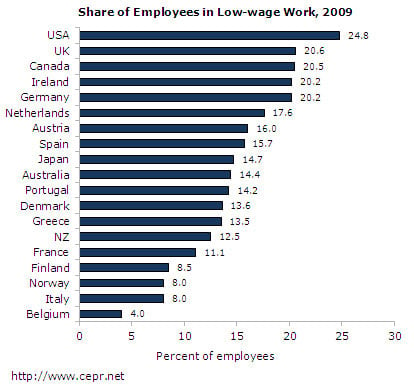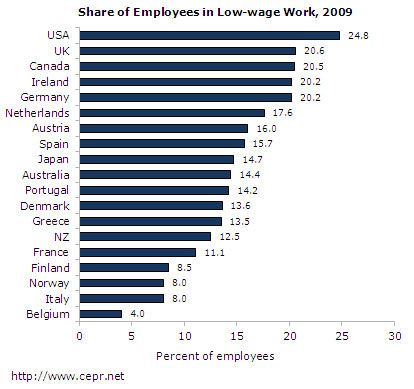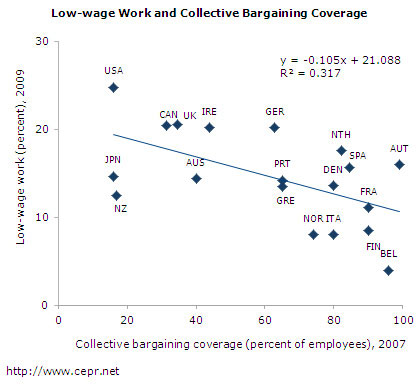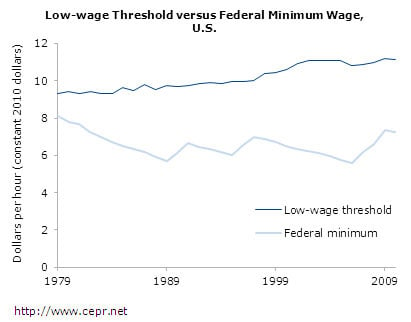
Truthout is a vital news source and a living history of political struggle. If you think our work is valuable, support us with a donation of any size.
Over the last two decades, high – and, in some countries, rising – rates of low-wage work have emerged as a major political concern. According to the Organization for Economic Cooperation and Development (OECD), in 2009, about one-fourth of U.S. workers were in low-wage jobs, defined as earning less than two-thirds of the national median hourly wage (see first figure below). About one-fifth of workers in the United Kingdom, Canada, Ireland, and Germany were receiving low wages by the same definition. In all but a handful of the rich OECD countries, more than 10 percent of the workforce was in a low-wage job.
If low-wage jobs act as a stepping stone to higher-paying work, then even a relatively high share of low-wage work may not be a serious social problem. If, however, as appears to be the case in much of the wealthy world, low-wage work is a persistent and recurring state for many workers, then low-wages may contribute to broader income and wealth inequality and constitute a threat to social cohesion. This report draws five lessons on low-wage work from the recent experiences of the United States and other rich economies in the OECD.


 Read the full report here.
Read the full report here.
A terrifying moment. We appeal for your support.
In the last weeks, we have witnessed an authoritarian assault on communities in Minnesota and across the nation.
The need for truthful, grassroots reporting is urgent at this cataclysmic historical moment. Yet, Trump-aligned billionaires and other allies have taken over many legacy media outlets — the culmination of a decades-long campaign to place control of the narrative into the hands of the political right.
We refuse to let Trump’s blatant propaganda machine go unchecked. Untethered to corporate ownership or advertisers, Truthout remains fearless in our reporting and our determination to use journalism as a tool for justice.
But we need your help just to fund our basic expenses. Over 80 percent of Truthout’s funding comes from small individual donations from our community of readers, and over a third of our total budget is supported by recurring monthly donors.
Truthout has launched a fundraiser to add 432 new monthly donors in the next 7 days. Whether you can make a small monthly donation or a larger one-time gift, Truthout only works with your support.